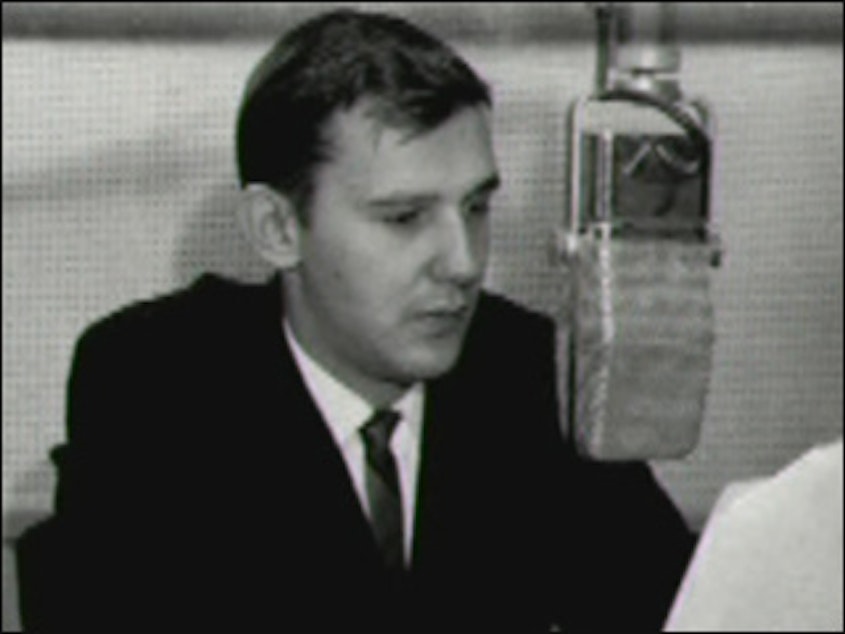KOMO Anchor: 'I'm There Trying To Ad Lib That The President' Has Been Shot

Longtime KOMO-TV and radio reporter Bryan Johnson covered many memorable stories during his more than 50 years as a Seattle broadcaster, but no event was more memorable than the day that President John F. Kennedy was assassinated.
Johnson, who is 77 and lives in Shoreline, joined the staff at KOMO in 1959. Working the late shift during his early years at KOMO required Johnson to wear many hats, from deejay to writer to anchor. On that day in November 1963, Johnson had been promoted to news director at KOMO, and he was working the day shift.
“I was at the station. I was sitting in the newsroom,” Johnson said. “It must have been around 10:30 a.m. or so that the alarm went off. And that was when the first dispatch came in and it said three shots were fired at President Kennedy's motorcade today in downtown Dallas.”
The Internet and CNN didn’t exist yet, of course. All KOMO had were six teletypes — or “wires” — churning out mechanically-printed news and information on big rolls of paper. When big stories broke bells and lights would ring and blink. The bigger the story, the greater the number of rings and blinks.
Johnson asked a newsroom colleague to bring him any wire copy that he could find about Kennedy’s visit to Dallas. With just limited information, Johnson went on the air.
As he spoke he monitored the ABC Radio Network in his headphones and kept an eye on the teletypes in the newsroom, waiting for the latest news.
“It was about four minutes later that the ‘flash’ came,” Johnson says. The flash signified the most urgent variety of news.
“Fifteen bells inside the newsroom, and all the alarm lights going off,” Johnson said. “‘Kennedy seriously wounded, perhaps fatally.’” Johnson went back on the air. “My heart is in my throat at this point. I am a young guy, 27 years old, and I’m there trying to ad lib that the president of the United States has been shot, perhaps fatally.” Johnson stayed on the air until the ABC national feed came back with more information.
Johnson spent the rest of his shift that day gathering local reactions to the news and producing short local newscasts. He did one live report for the national ABC network.
“There are lots of times when you get shaken to the core,” Johnson said. “But you somehow, as the English would say, soldier on.”
